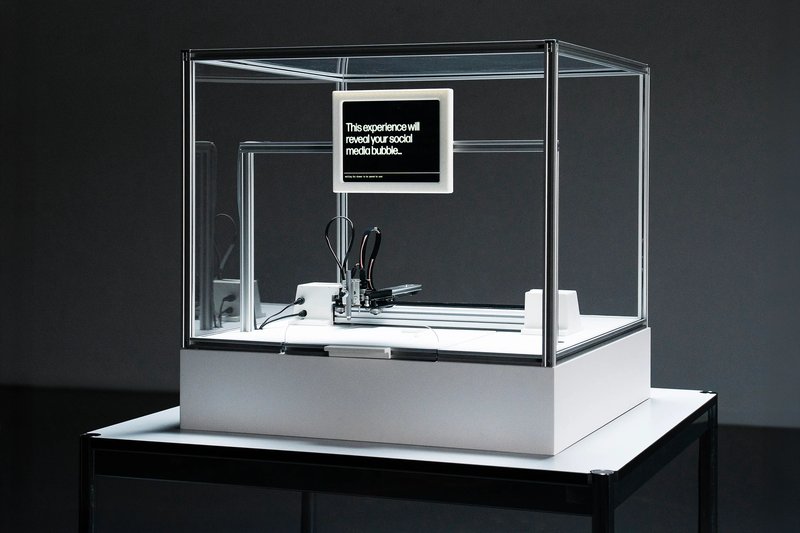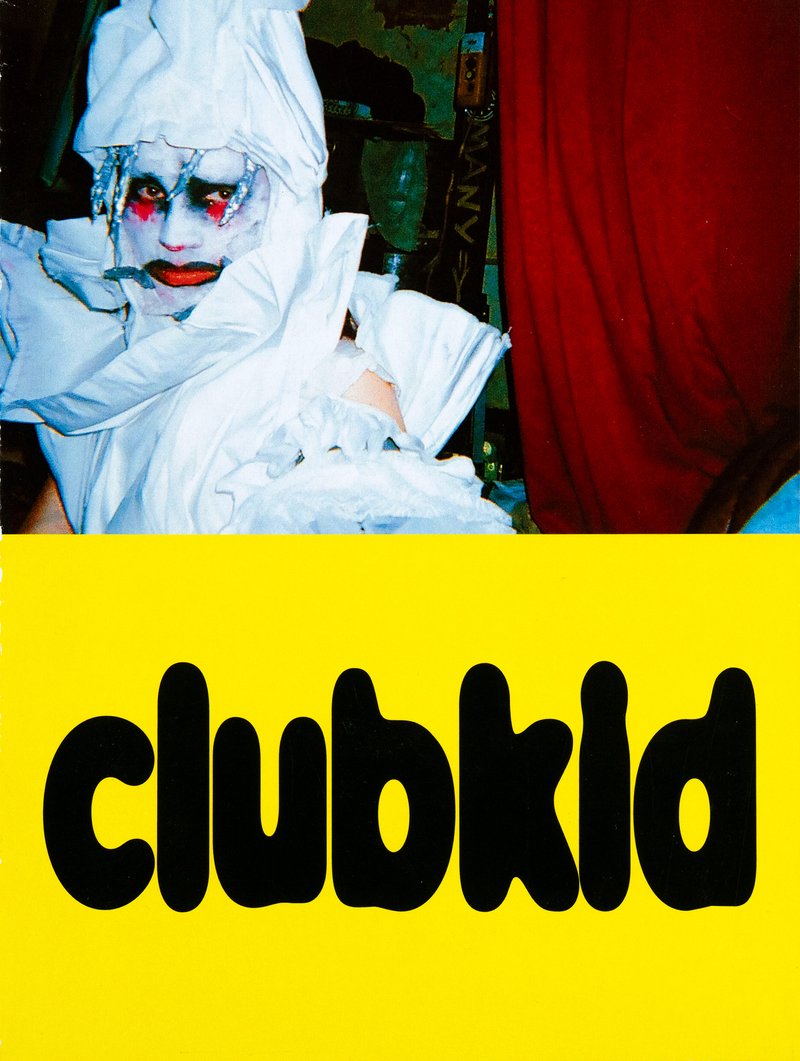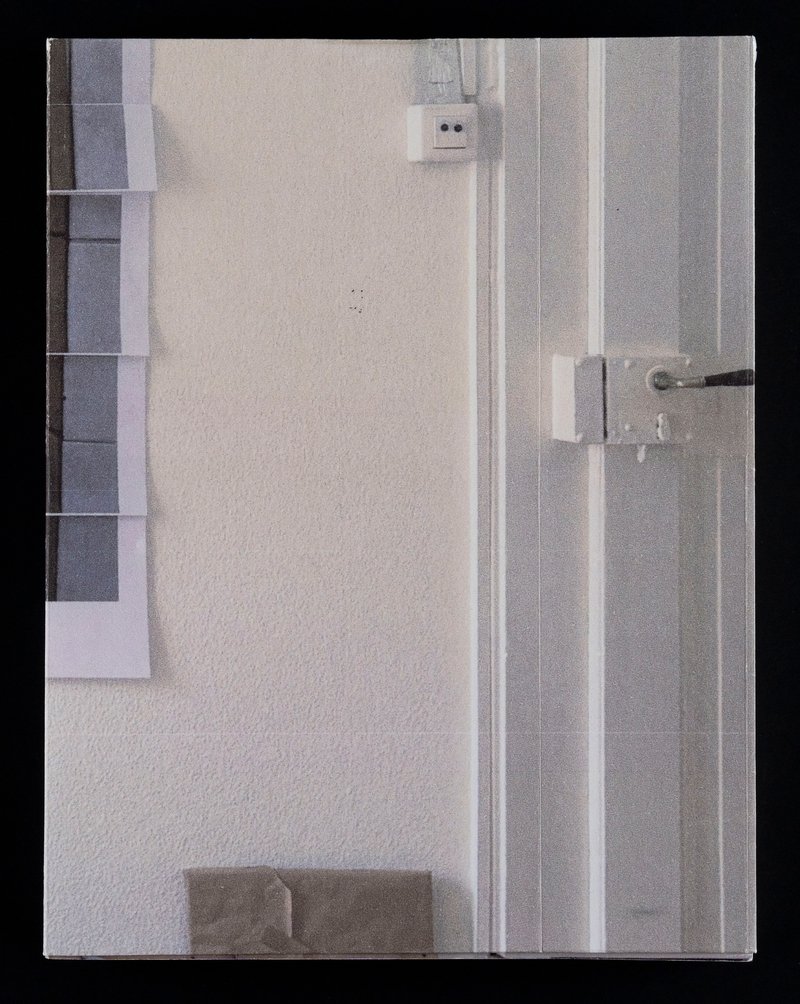
BA MEDIA & INTERACTION DESIGN
Thomas Gaudin – UnBubble
with Pauline Saglio, Christophe Guignard, Alain Bellet, Gaël Hugo, Lara Défayes, Laura Nieder
Unbubble is an interactive installation in which a robot explores a user’s smartphone to analyze their Instagram usage. This intrusive act highlights a paradox: if it’s rare to hand one’s phone to a machine, we nonetheless do so every day by letting algorithms collect our data. Our online habits shape a tailor-made reality that filters, sorts, suggests, and sometimes limits our horizons. Unbubble questions how our digital traces construct a fragmented image of ourselves — one that is then used to guide our choices, desires, and attention. The installation invites us to become aware of these mechanisms and opens up a space to imagine other narratives, other ways of navigating, and other worlds to explore beyond the paths laid out by algorithms.













